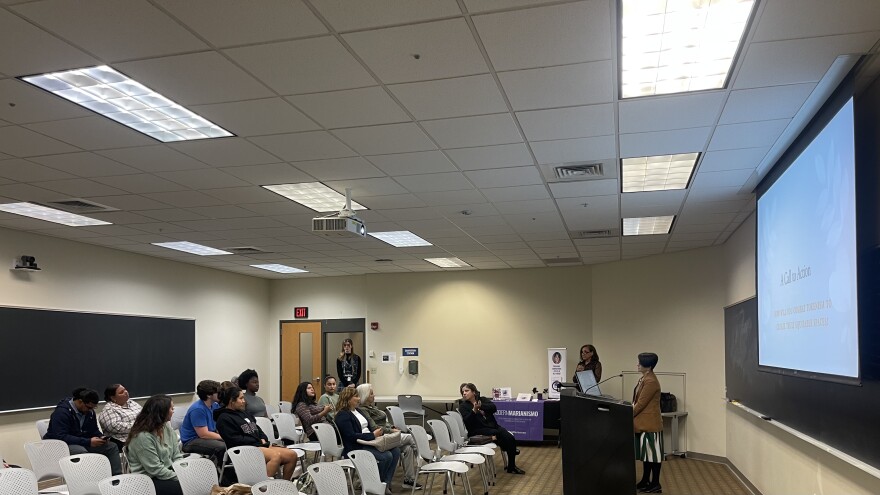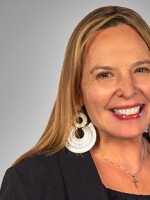BETHLEHEM, Pa. — As part of its Hispanic Heritage Month celebrations, students and faculty from Moravian University held a conversation about tokenism and diversity.
The lecture was inside a classroom at the Priscilla Payne Hurd Campus on Thursday and led by guest speaker, Damary Bonilla-Rodriguez, a leader on diversity, inclusion and development and a committee member of the PA Latino Convention.
Causing feelings of isolation, stress
The lecture began by defining tokenism, which is the practice of doing something (such as hiring a person who belongs to a minority group) only to prevent criticism and give the appearance that people are being treated fairly, according to Merriam-Webster.
Citing personal life-experiences, Bonilla-Rodriguez also shared examples of tokenism and offered solutions on how to avoid it by instead creating equitable spaces, or conversations.
"I'm so happy that we're talking about this to motivate people. This is not only about numbers. It's about real representation."Nilsa Lasso-Von Lang, associate professor of Spanish and assistant director of multicultural enrollment at Moravian University.
Bonilla-Rodriguez shared a slide on the mental health effects of tokenism, according to Health.com.
Those include feelings of isolation, being in the spotlight, lack of acknowledgment, experiences of burnout and stress, being pigeonholed, and the need to be on guard.
She then asked the audience to share ways in which tokenism has affected them.
One student shared that she often feels isolated as a multi-racial Latina and Asian person, because she is expected to "act in a certain way." Another mentioned that she was born in Colombia and is bilingual, but feels put "on the spot" when asked to translate between English and Spanish speakers.
"Lots of people feel that way at one time or another, because they don't fit in enough. With you, it might be your race, your ethnicity, your cultural identity. For someone else it may be their age, or they just don't feel good enough," Bonilla-Rodriguez said.

"Maybe you feel you can fit in with the a [certain] community, but you don't speak the language, and so what it does to you is it puts you in these other predicaments of feeling exhausted, feeling stressed all the time. You may not even go out to some of these spaces, because you just don't feel like you can fit it. There are lots of people that are dealing with this experience, because we don't always know how to process diversity."
The audience also opened up about their negative experiences in the classroom, including how often their peers are "singled out" for their race or ethnicity.
"First of all, you have to build coalition," Bonilla-Rodriguez said. "The grassroots work is critical, not just in politics, not just in fundraising for nonprofits, but really in feeling safe. [If you are] in a class and see something] Can you call a conversation with those individuals? Can you say let's meet in the cafeteria or for coffee?"
If the person, or individuals, are not receptive to a conversation, she suggested the students speak to someone with higher authority and report acts of discrimination on campus, which can be done anonymously.
'Real representation'
The lecture was organized by Lasso-Von Lang, associate professor of Spanish and assistant director of multicultural enrollment at the university.
A native of Panama, Lang joined the university as a professor in 2002, and at the time, was one of the only Latino persons on the entire campus' teaching faculty.
"Back then, there were less than5 percent of Latino teachers, so we've come a long way," Lang said. "I'm so happy that we are talking about this to motivate people. Because as [Bonilla-Rodriguez] said, this is not only about numbers. It's about real representation."
According to Lang, the university is pushing to recruit more minority students, specifically Latinos, which represent the fastest-growing population in the state.
"Right now, we have close to 18 percent Latinos [at Moravian] and I want to make sure when we recruit, that it's not just telling [students] that we have grants or money for them, but also that they feel welcome as Latinos and to feel prepared," Lang said.


